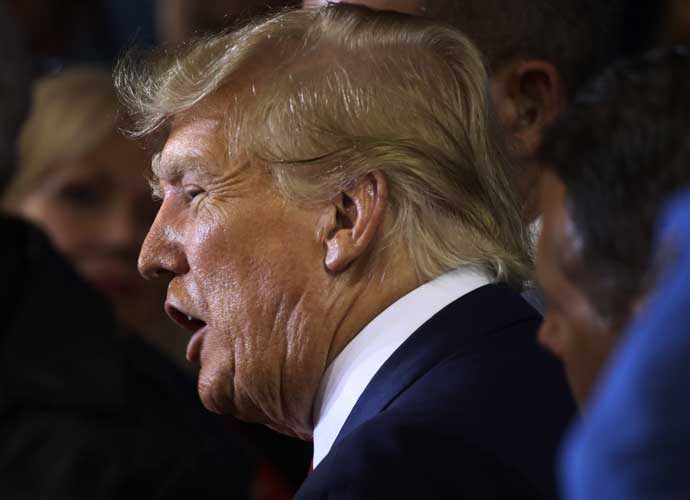Trump’s Lawyer Claims In Court A U.S. President Can Assassinate A Rival & Not Face Criminal Prosecution, Prosecutors Call Argument ‘Terrifying’
John Sauer, Donald Trump‘s lead lawyer in his federal election fraud case, declared that presidential immunity would allow a U.S. president to order SEAL Team Six to assassinate a political rival without having to face criminal prosecution.
Sauer made the wild claim for executive immunity at a hearing at a federal appeals court on January 9.
When delivering his statement, he said that only if a president has been impeached and Congress has removed him from office, only then could they be criminally prosecuted.
According to Sauer, this means that Trump is immune from criminal prosecution.
“Could a president who ordered SEAL Team 6 to assassinate a political rival, and is not impeached, would he be subject to criminal prosecution?” one judge asked Sauer.
“If he were impeached and convicted first… there is a political process that would have to occur,” Sauer replied.
Assistant Special Counsel James Pearce told the panels of judges to reject Trump’s argument.
“Never in our nation’s history until this case has a president claimed that immunity from criminal prosecution extends beyond his time in office,” Pearce stated to the court.
The team lawyers representing Special Counsel Jack Smith argued that presidents are not above the law.
Pearce said that it would be “terrifying” if there were no criminal procedure to prevent future presidents from seizing power by force.
Despite this, the judges were curious as to whether or not they even had jurisdiction to determine the question of presidential immunity at this point in the case.
Trump is set to go on trial in March 2024 for his role in attempting to overturn the 2020 presidential election, for which he has pleaded not guilty.
The former president decided to attend the appeals court hearing.
As for the appeals court ruling, it is bound to provoke a clash about presidential immunity at the Supreme Court.
The judges had blunt questions for Sauer over his claim that Trump had immunity since his actions after losing the 2020 election were part of “his duties as president.”
The judges challenged Sauer on his claim that Trump could only face criminal prosecution if he were initially impeached and convicted by Congress for similar behavior.
D.C. Circuit Court Judge Karen Henderson, an appointee of former President George H.W. Bush, seemed doubtful that Trump had been acting within his official responsibilities.
“I think it is paradoxical to say that his constitutional duty to take care of the laws be faithfully executed allows him to violate criminal law,” she claimed.
Judge Florence Pan interrogated Sauer over his belief that impeachment and conviction by Congress were necessary for any criminal prosecution of a president.
She asked him to acknowledge that he was accepting the idea that there is a path for presidents to be prosecuted.
“Once you concede that presidents can be prosecuted under some circumstances, your separation of powers argument falls away, and the issues before us are narrowed too. Are you correct in your interpretation of the impeachment judgment clause?” Pan stated.
Sauer asserted that Smith’s decision to file charges against Trump could inspire similar prosecutions.
He warned everyone that this particular case could, in theory, inspire charges against President Joe Biden, Barack Obama or George W. Bush.
“To authorize the prosecution of a president for his official acts would open up Pandora’s box from which this nation may never recover,” Sauer argued.
This court has considered an appeal in Trump’s election obstruction case after the trial’s judge previously denied these arguments regarding the extent of presidential immunity.
Trump has faced numerous legal setbacks in recent weeks. Maine’s Secretary of State, Shenna Bellows, removed him from the state’s 2024 primary ballot in December 2023.
This came after she determined that due to the former president’s involvement in the U.S. Capitol attack on January 6, 2021, he violated Section 3 of the U.S. Constitution’s 14th amendment, which prohibits individuals who took part in insurrection from having a powerful position in the government.
Last week, Trump accused former Rep. Liz Cheney (R-Wyoming) of committing sabotage by deleting or destroying evidence about January 6 without providing any evidence.
Cheney, however, claimed that Trump was able to access the January 6 committee materials and grand jury information for months.
RELATED ARTICLES
Get the most-revealing celebrity conversations with the uInterview podcast!









Leave a comment